The third month of pregnancy
The third month of pregnancy covers the 9th-12th week of pregnancy and means the end of the first trimester. Your baby develops quickly and gets through the most critical phase of pregnancy. It is now about the size of a chicken egg and weighs a hefty 8-14g. This is the month of the first major check-up, when you will see your baby for the first time on an ultrasound.
Development stage of the baby in the third month of pregnancy
At the beginning of the third month of pregnancy, the embryo measures about 2.5-3cm at about 2-3g. The measurement is always the “crown-rump length” (SSL), i.e. the distance from the head to the rump. In the last week he is already 5-6cm tall and weighs 8-14g. From now on, your baby is no longer called an embryo, but a fetus.
The fetus is still tiny, but its development is progressing rapidly. It already looks much more human than in the second month of pregnancy. Its legs and arms are getting longer and knee joints and elbows are forming. The small hands and feet are taking shape as the toes separate and the webbed joints between the fingers disappear. The eyes move to the front of the face and close through the now fully developed eyelids. The fetus will not open its eyes again until the 6th month of pregnancy. The nose and ears become more noticeable and slowly slide into place. The lips, palate, upper and lower jaws, dental systems and salivary glands are also developing.
In the 3rd month of pregnancy, the embryo’s brain grows very rapidly. Every minute it is expanded by thousands of nerve cells, which subsequently become interconnected. To protect the brain, the bones of the skull form (previously they were made of cartilage). These are still soft, cartilaginous and connected by the fontanelles (connective tissue sutures of the skull). The fontanelles make it possible for the embryo’s brain to grow without problems and for the head to fit through the birth canal at birth. Not only the brain but also the nervous system develops intensively. By the middle of the 3rd month, the differentiation of the neural tube into the brain and spinal cord is complete. Neural tube defects, such as anencephaly (absence of parts of the brain) or spina bifida (also called “open back”) are excluded from this time on. The most critical phase is thus overcome by the end of the first trimester.
In the course of the 3rd month of pregnancy, your baby is able to move his hands, feet and mouth, he turns his little head and makes fists. All his movements result from reflexes from the spinal cord. For example, the knee-jerk reflex causes the baby to kick its legs slightly, and the sucking reflex causes the baby to suck its thumb. From the 11th week of gestation, fetuses can also hiccup, as the diaphragm has developed. This is important to prepare for breathing when the baby is born.
By the end of the first trimester, the fetus (about 4-5cm, 7-8g) has formed major organs such as kidney, liver and stomach. Some of them are already functional. For example, red blood cells or urine can be formed…. The liver now weighs 10% of the body weight, as it is mainly responsible for blood formation.
Although the sex cannot yet be determined in the 12th week, fallopian tubes and parts of the vagina and uterus have formed in female fetuses and a small penis and testicles located in the body have formed in male fetuses.
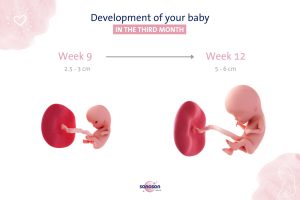
Symptoms and physical changes of the expectant mom
As the level of the pregnancy hormone HCG peaks at the beginning of the third month, many expectant moms suffer from nausea as well as fatigue. But things are looking up! The hormone HCG decreases sharply in the coming weeks, so that usually the unpleasant symptoms from early pregnancy also decrease. Many women already feel a lot better towards the end of the third month.
Some pregnancy symptoms disappear, others follow directly. The baby spreads more and more and presses on various organs, such as the stomach, intestines and bladder. This results in constipation, bloating, heartburn and frequent urination.
The hormone concentration of MSH (melanocyte stimulating hormone), which influences skin pigmentation, increases. Therefore, the expectant mother may notice new pigment spots or darker moles on her body. Symptoms such as sudden acne, tight skin or particularly thick hair are also due to hormones.
By the end of the third month of pregnancy, you will probably notice a slight weight gain of 1-2kg. The breasts will become larger and firmer and are now already preparing for breastfeeding. Due to the developing milk ducts and the resulting high blood flow to the breasts, the veins under the skin will become much more visible. At the end of the third month, you may already be able to see a minimal bulge in your belly. As a rule, however, not much is visible at this time.
The fact that your emotions are going crazy is also completely normal in the third month of pregnancy and nothing to worry about. Many pregnant women experience strong mood swings, from irritability, fears and negative thoughts to joy and euphoria. Your hormones are to blame for this chaos. In this phase it helps to confide in your loved ones and talk about your feelings and any doubts.
The first screening
The first major check-up with the gynecologist is scheduled between the 9th and 12th week of pregnancy.
At the beginning, the doctor will measure weight and blood pressure and perform a vaginal and breast examination. Information about the date of your last period, abnormal pregnancy symptoms, previous pregnancies, possible abortions, etc. will be recorded in the medical record.
To make sure that everything is going smoothly in your pregnancy and that your baby is doing well, the doctor will perform a series of tests. These include blood tests, urine tests and an ultrasound.
The blood test is necessary to determine the mother’s blood type and rhesus factor. Usually, the test also looks for antibodies to various viruses (toxoplasmosis, hepatitis, …) and determines the iron content in the blood to detect anemia early.
During the urine examination, it is determined whether there is a urinary tract infection, gestational diabetes or preeclampsia. Preeclampsia is a pregnancy complication in which blood pressure rises and increased protein is excreted in the urine. This can lead to fatal seizures.
The ultrasound is used to get a closer look at your baby. The heartbeat of the fetus is listened to, the size and position are determined and other physical structures are visualized/measured. During the ultrasound examination, it is determined whether there is a multiple pregnancy.
In addition to this “standard” screening examination, prenatal diagnostics can also be performed. With prenatal diagnostics, various tests can be used to assess whether the unborn baby has any disabilities or diseases.
A distinction is made between non-invasive and invasive methods.
Non-invasive methods include nasal bone measurement, nuchal translucency measurement, or the triple test. There is no physical intervention, the probability of a disease or chromosomal disorder is calculated solely on the basis of various parameters (measurements, blood values).
With invasive methods, the situation is quite different. Here, there is direct intervention in the pregnant woman’s body, e.g. to examine the amniotic fluid, tissue samples of the placenta, or the umbilical cord.
Pregnancy announcement

Congratulations!
You have overcome the most critical phase of your pregnancy after the 12th week of pregnancy. Now it’s time to tell your friends and family (if you want to) the happy news. But why do you do it only in the 12th week of pregnancy? At the beginning of the second trimester the pregnancy is much more stable. Before that, there is a higher risk of miscarriage or other complications.
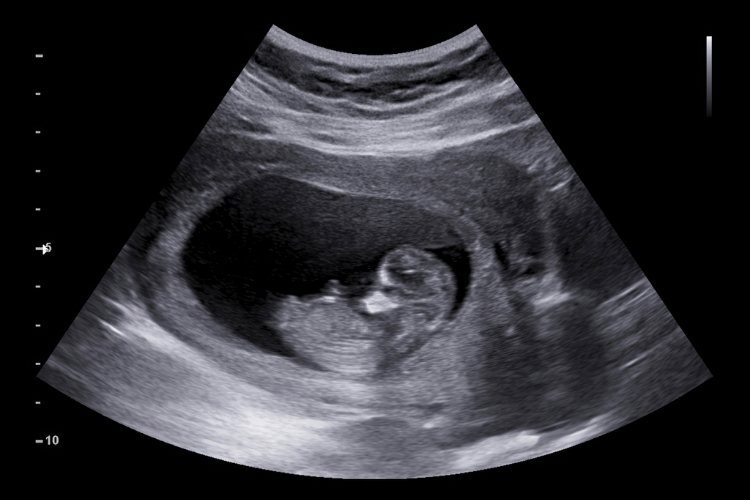
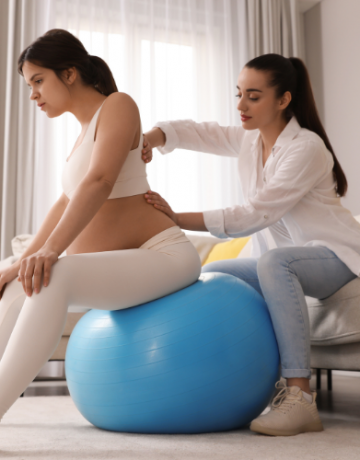
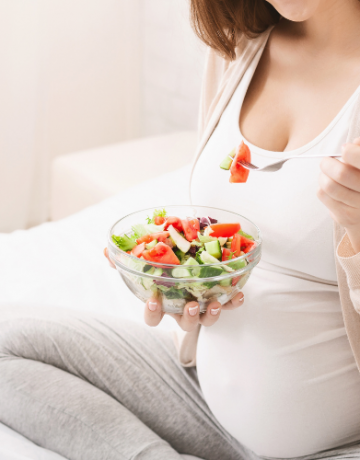
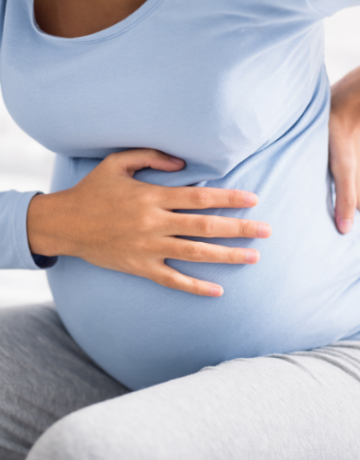

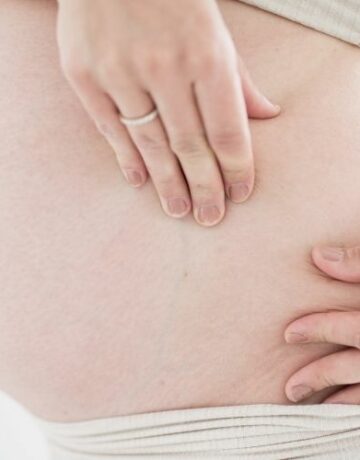


Comments (0)